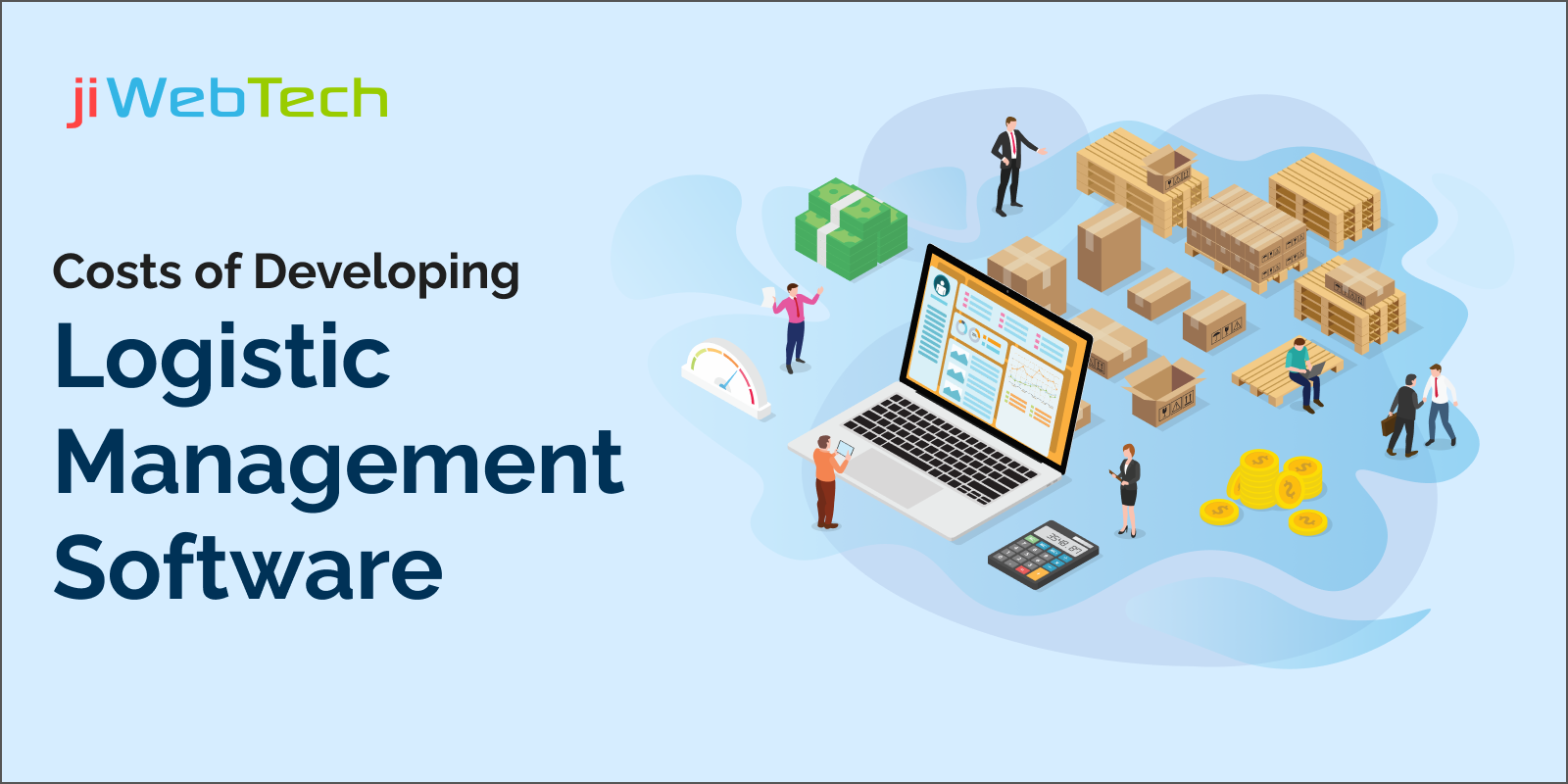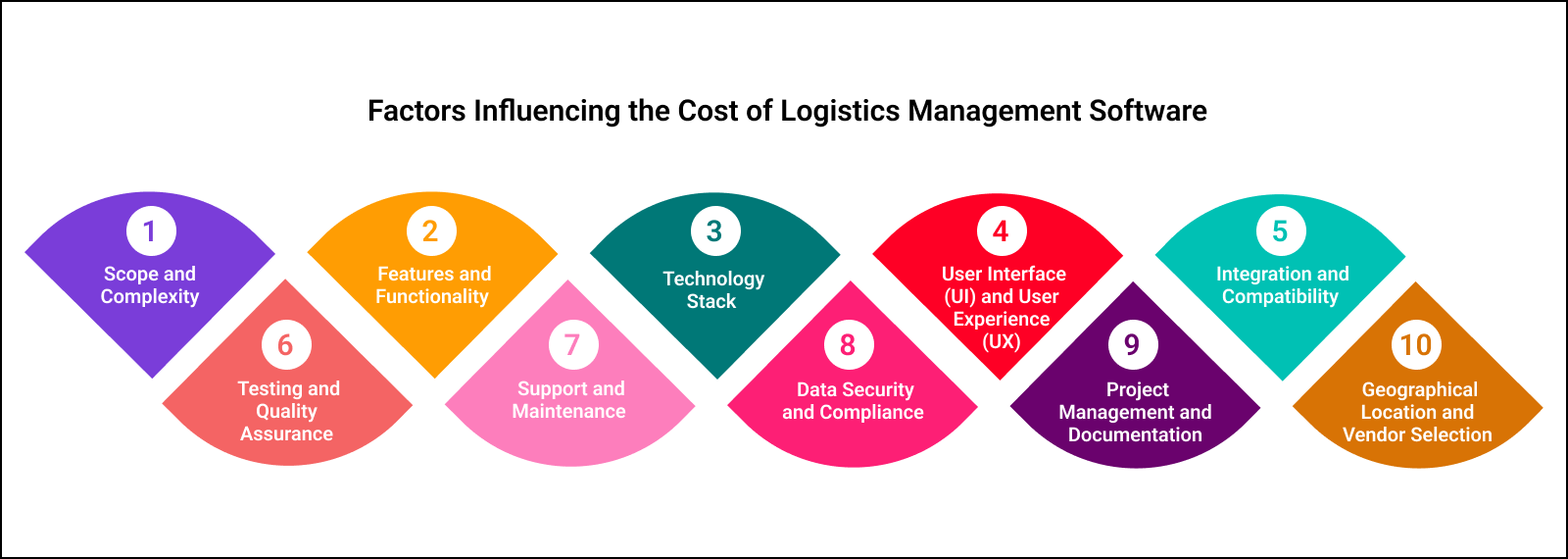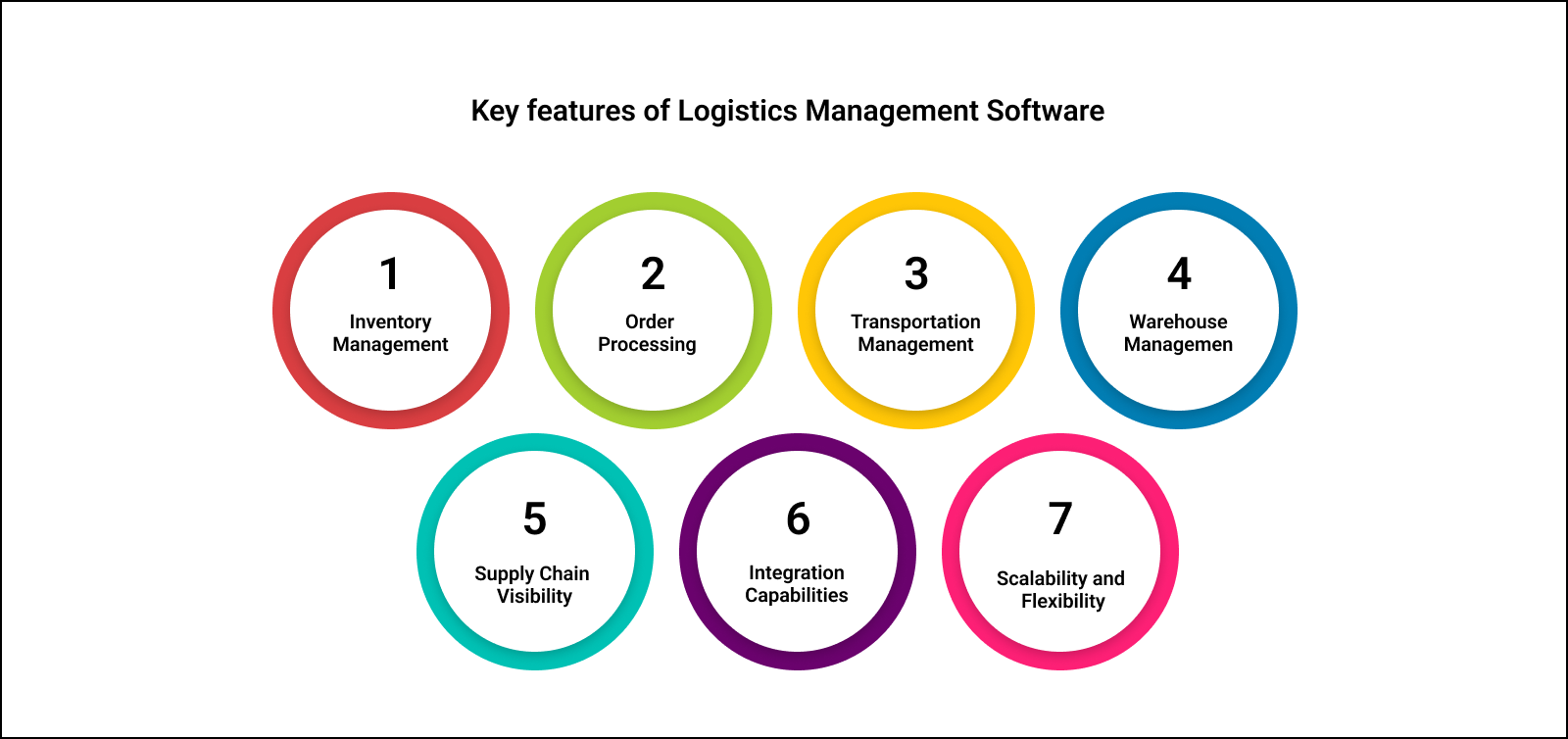- Sep 13, 2024
- Marketplace
- 4332
Share this post on:

Logistics management software has become an essential tool for businesses in today's fast-paced supply chain environment. With the right software, companies can streamline their operations, reduce costs, and improve customer satisfaction. However, developing such software requires significant investment, and the cost can vary greatly depending on various factors. In this blog post, we will provide a detailed pricing guide for logistics management software development based on key factors.
Pricing Guide
Based on the factors mentioned above, here's a rough pricing guide for developing logistic management software:
- Basic Software: $10,000 - $25,000
Simple software with essential features, suitable for small businesses or startups. - Mid-level Software: $25,000 - $50,000
Software with a moderate level of complexity and features is suitable for medium-sized enterprises. - Enterprise-level Software: $50,000+
Comprehensive software with advanced functionalities, suitable for large enterprises with complex logistics needs.
It's important to note that these are rough estimates, and actual costs may vary based on specific requirements, customization, and other factors.
ROI Considerations
While developing logistics management software incurs upfront costs, businesses should consider the return on investment (ROI) over time. Customized software tailored to specific operational needs can lead to increased efficiency, reduced errors, improved decision-making capabilities, and enhanced customer satisfaction—all of which contribute to long-term cost savings and revenue growth.
Factors Influencing the Cost of Logistics Management Software
Several factors influence the cost of logistics management software development. Understanding these factors is crucial for businesses planning to invest in such software. Here are the key factors:

1. Scope and Complexity:
The scope and complexity of the software significantly impact development costs. Basic software with limited functionalities will be less expensive compared to comprehensive solutions with advanced features like route optimization, real-time tracking, and inventory management.
2. Features and Functionality:
The number and complexity of features integrated into the software directly affect costs. Common features include order management, inventory tracking, freight management, reporting tools, CRM integration, and analytics capabilities. The more features included the higher the development costs.
3. Technology Stack:
The choice of technology stack, including programming languages, frameworks, databases, and third-party integrations, influences development costs. Opting for modern and robust technologies may lead to higher initial costs but can provide long-term benefits in terms of scalability, performance, and maintenance.
4. User Interface (UI) and User Experience (UX):
Investing in intuitive UI/UX design enhances user satisfaction but adds to development costs. Factors such as user research, wireframing, prototyping, and iterative design processes contribute to expenses.
5. Integration and Compatibility:
Logistic management software often needs to integrate with existing systems such as ERPs, CRMs, accounting software, and transportation management systems (TMS). Compatibility with various platforms, APIs, and data formats requires additional development effort, impacting costs.
6. Data Security and Compliance:
Ensuring data security and compliance with industry regulations such as GDPR, HIPAA, or PCI DSS is essential and may incur additional costs. Implementing robust security measures, encryption protocols, and compliance checks is crucial for protecting sensitive information and maintaining trust.
7. Testing and Quality Assurance:
Rigorous testing and quality assurance processes are essential for identifying and rectifying bugs, glitches, and performance issues. Investing in automated testing frameworks, manual testing, load testing, and security audits adds to development costs but ensures a stable and reliable software product.
8. Support and Maintenance:
Post-deployment, ongoing support, and maintenance are necessary for addressing user feedback, releasing updates, and scaling the software. Factoring in the costs of regular updates, patches, bug fixes, and technical support is essential for long-term sustainability.
9. Project Management and Documentation:
Effective project management, including requirement gathering, sprint planning, progress tracking, and communication, contributes to development costs. Comprehensive documentation facilitates knowledge transfer, troubleshooting, and future enhancements.
10. Geographical Location and Vendor Selection:
Development costs vary based on the geographical location of the development team or vendor. Offshore development teams may offer cost-effective solutions, but factors such as language barriers and time zone differences should be considered while selecting a vendor.
Key features of Logistics Management Software
Whether it's optimizing supply chains, managing inventory, or streamlining transportation, logistics software plays a pivotal role. Logistics Management Software is designed to automate and streamline various aspects of the logistics process, enhancing efficiency and reducing costs. Let's delve into the key features that make logistic management software indispensable for modern businesses.

1. Inventory Management:
Efficient inventory management is the cornerstone of successful logistics operations. Logistic management software provides real-time visibility into inventory levels, locations, and movements. It enables businesses to track stock levels accurately, anticipate demand, and avoid stockouts or overstock situations. Advanced features may include barcode scanning, serial number tracking, and automated replenishment.
2. Order Processing:
From order placement to fulfillment, logistic management software streamlines the entire order processing workflow. It automates order entry, routing, and fulfillment, reducing manual errors and processing times. Integration with e-commerce platforms and marketplaces allows for seamless order capture and processing across multiple channels. Businesses can also prioritize orders based on various criteria, such as urgency, shipping method, or customer location.
3. Transportation Management:
Efficient transportation management is critical for optimizing delivery routes, reducing shipping costs, and ensuring timely deliveries. Logistic management software facilitates route planning and optimization, considering factors such as distance, traffic, and vehicle capacity. It also provides real-time tracking of shipments, allowing businesses to monitor delivery status and address any issues promptly. Integration with GPS and telematics systems enables accurate tracking and monitoring of vehicles in transit.
4. Warehouse Management:
Warehouse operations involve complex processes such as receiving, storage, picking, packing, and shipping. Logistic management software automates and streamlines these processes, improving efficiency and accuracy. It optimizes warehouse layout and storage space utilization, reducing picking and packing times. Additionally, features like batch picking, wave picking, and cross-docking help expedite order fulfillment while minimizing handling costs.
5. Supply Chain Visibility:
End-to-end visibility is essential for effective supply chain management. Logistic management software provides visibility into the entire supply chain, from suppliers to customers. It tracks the movement of goods at every stage, allowing businesses to identify bottlenecks, mitigate risks, and optimize processes. Advanced analytics and reporting capabilities enable businesses to gain insights into key performance metrics and make data-driven decisions.
6. Integration Capabilities:
Seamless integration with other business systems is crucial for maximizing the benefits of logistic management software. Integration with enterprise resource planning (ERP) systems, transportation management systems (TMS), and warehouse management systems (WMS) ensures data consistency and accuracy across the organization. It also facilitates automation of end-to-end processes and eliminates silos between departments.
7. Scalability and Flexibility:
As businesses grow and evolve, their logistics needs change accordingly. Logistic management software offers scalability and flexibility to adapt to changing requirements. Whether it's expanding into new markets, adding new product lines, or accommodating seasonal fluctuations in demand, the software can scale up or down as needed. Modular architecture allows businesses to customize the software to suit their specific needs and workflows.
Conclusion
In conclusion, logistic management software stands as a cornerstone in the modern business landscape, offering a comprehensive solution to the complex challenges of logistics operations. With its array of features, this software not only enhances operational efficiency but also drives cost savings and improves customer satisfaction.
By leveraging advanced technology and automation, logistic management software empowers businesses to streamline their processes, optimize resource utilization, and adapt swiftly to changing market dynamics. It provides the agility and visibility needed to navigate the intricacies of global supply chains while maintaining control and ensuring compliance.
As businesses continue to evolve and grow, investing in robust logistic management software becomes not just a competitive advantage but a necessity. It enables organizations to stay ahead of the curve, drive innovation, and deliver exceptional value to customers, ultimately fostering long-term success in today's interconnected and dynamic marketplace.
Hence, if you are looking to develop logistic management software, look no further than jiWebTech. We have a team of expert developers who take full responsibility for the solutions that they develop. Our experts ensure that you get the best solution as per your business requirements. Contact us to learn more.









